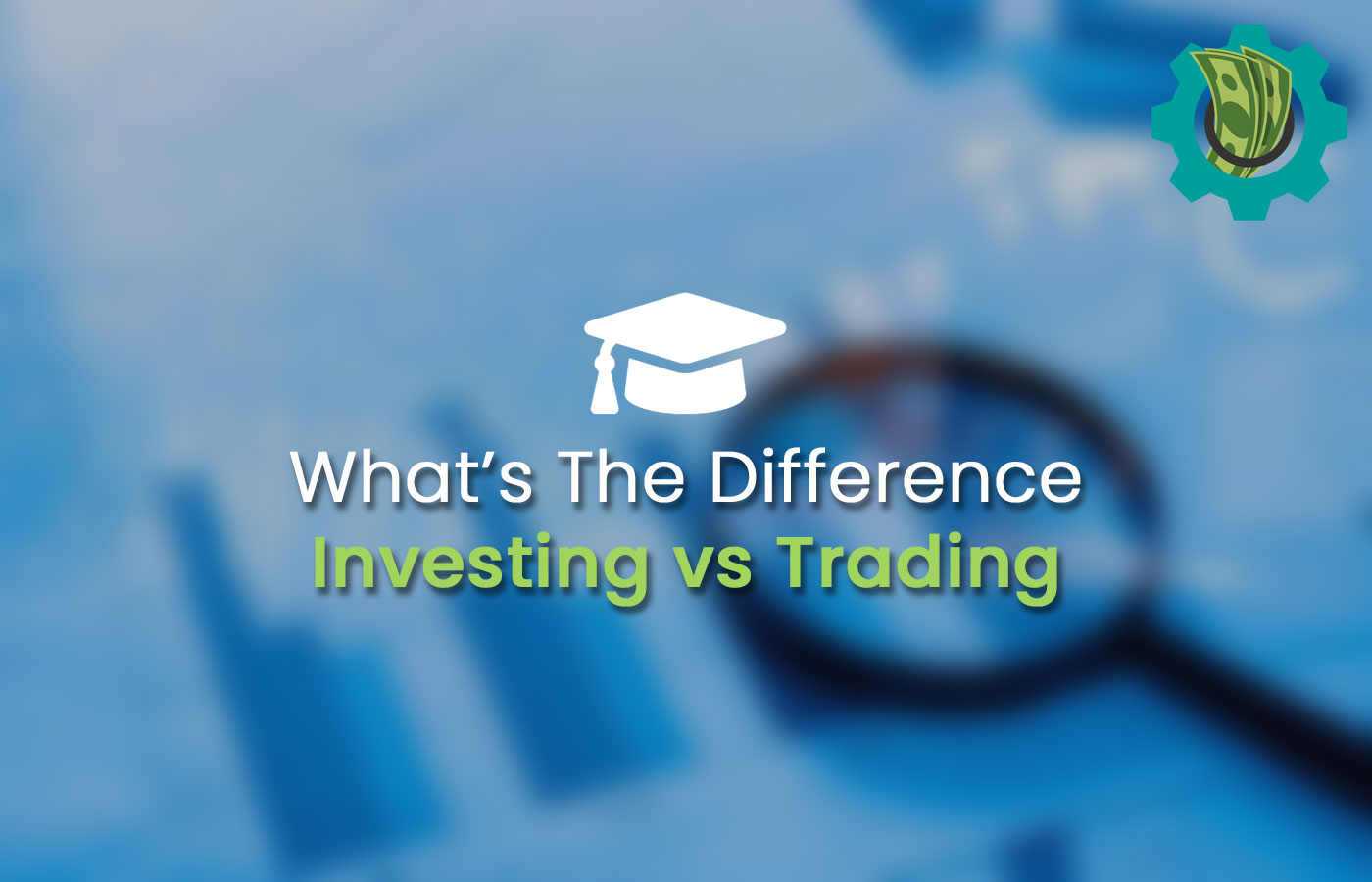[ad_1]
With interest in the stock market spiking in recent years, there has been a huge surge in investing and trading activity. Yet despite the terms often being used interchangeably, they’re anything but the same.
So what exactly is investing versus trading? How much risk is involved? And which investment strategy is more profitable? Let’s take a closer look.
Investing vs Trading: Meaning and differences
Benjamin Graham’s definition of an investment operation is a good place to start. He defined an investment as “an operation in which, upon thorough analysis, promises safety of principal and adequate returns”.
This is the core principle behind both investing and trading. However, the two strategies take very different approaches to generate a return.
Long-term investing is when an individual buys shares in a business that they believe will grow in the future and become more valuable in the long term. This assumption is often based on fundamental analysis where the investor has analysed the business, its financial statements, and other relevant factors.
Trading is when an individual buys stocks they believe could see substantial price movement in a short space of time. The trader doesn’t typically focus on fundamentals but instead on technical analysis, trying to spot patterns in share price volatility to buy and sell shares quickly – sometimes even within a few minutes of each other.
The world of short-term trading is vastly complex. And there is a plethora of sub-strategies that can be deployed, such as day trading, swing traders, and momentum trading, to name only a few.
| Investing | Trading |
|---|---|
| Takes a long-term approach to the market | Trading takes a short-term approach to maximise returns on a daily, weekly, monthly or quarterly basis. |
| Short-term movements of the stock market do not affect the investment decision-making process. | Price movements are massively important and dictate when trading opportunities occur. |
| The investor aims to build wealth gradually by buying and holding a portfolio of stocks, funds, bonds or other investment instruments for a long time. | A trader carries out more transactions in the pursuit of buying low and selling high (or vice versa in the case of short selling). |
| The investors’ return is usually calculated quarterly or yearly. | The trader seeks superior returns within a short timeframe. |
Which can make you rich: investing vs trading?
Truth be told, some people have been made rich by trading, just as we have people who are multi-billionaires through investing.
For new entrants to the stock market, trading can appear to have a far greater appeal than investing. Even more so today, with commission-free trading platforms gamifying the entire process. However, despite what many internet “gurus” would have people believe, trading is exceptionally difficult to get right.
In fact, 90% of traders, including professionals, end up losing money. And of the 10% that succeed, most fail to outperform stock market indices like the FTSE 100 or S&P 500.
What about investing? Achieving market-beating returns is still challenging for long-term investors. But the rate of success is much higher at 20% of mutual fund managers delivering outperforming returns. And with the creation of exchange-traded funds, investors can simply put their money into a low-cost index tracker fund and enjoy an average 10% annual return without needing to pick any individual stocks.
There are plenty of factors at play that explains why most investors and traders lose money. But some of the most common reasons relate to simply not understanding what they’re actually doing.
That’s why it is imperative that before allocating any capital into stocks, investors should understand exactly what they’re buying and the risks involved. In the world of trading, incorrectly predicting price movements can lead to substantial losses. In the world of investing, not recognising the threats to a business can make a seemingly solid investment turn into a dud within the space of a few months.
Final thoughts
Although investing and trading seem to have low success rates, it’s possible to grow substantial wealth by deploying these strategies. That’s why so many individuals and financial institutions continue to pour money into the stock market.
Deciding which route to walk down is ultimately a personal decision. Here at The Money Cog, we’re an advocate for investing in high-quality businesses capable of delivering market-beating returns in the long run.
A Monster Growth Opportunity?
Make no mistake: the Medical Technology Revolution is happening!
- Robotic surgery procedures have increased by more than 800% since 2014.
- Telehealth usage has stabilised at levels 38X higher than pre-pandemic levels.
- Augmented Reality is becoming more common in the operating room.
… and it’s barely gotten started.
In fact, experts are predicting a $630 Billion surge by 2030!
Quite simply, we believe it deserves your attention today.
So please don’t wait another moment.
Discover this massive investment opportunity before it’s too late!
Prosper Ambaka does not own shares in any of the companies mentioned. The Money Cog has no position in any of the companies mentioned. Views expressed on the companies and assets mentioned in this article are those of the writer and therefore may differ from the opinions of analysts in The Money Cog Premium services.
[ad_2]
Image and article originally from themoneycog.com. Read the original article here.

